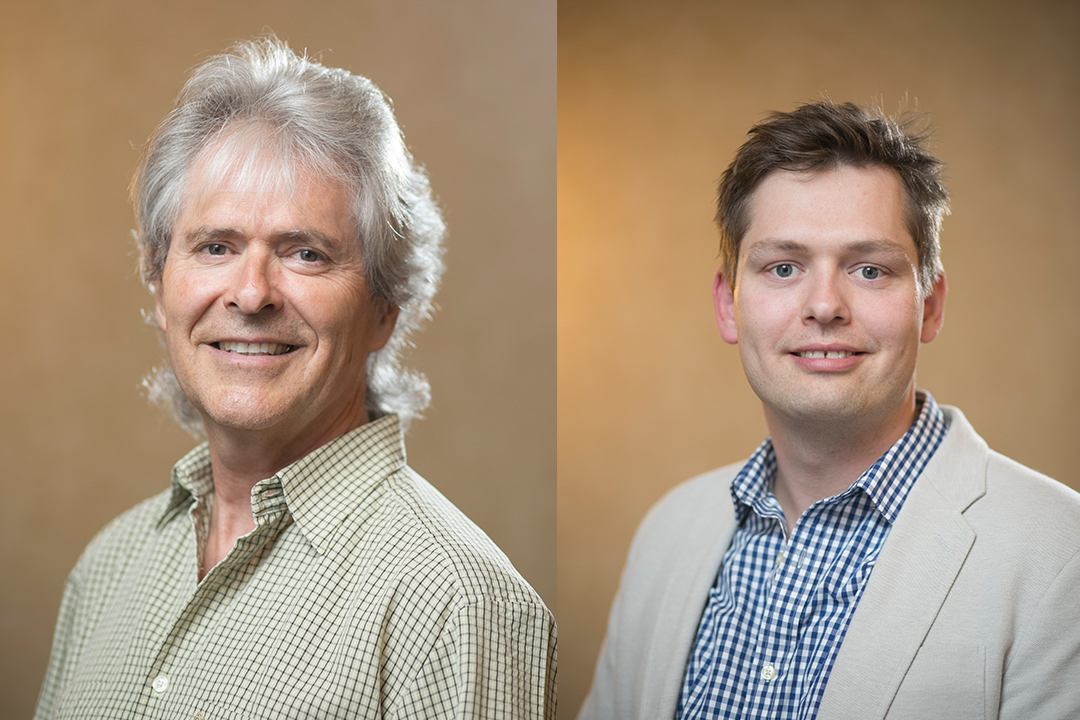Valued at $10,000 each, the grants enable the research teams to use new Microsoft technology to improve plant breeding by creating new ways to analyze plants and automatically identify traits related to plant growth, health, resilience and yield. The investment will help researchers better analyze plant genomics associated with crop traits, such as flowering time yield, and resistance to stress from drought.
Ian Stavness, associate professor in the U of S Department of Computer Science, will use Microsoft Azure cloud computing resources to create new ways to analyze images and videos of plants and crops to automatically identify traits related to plant growth, health, resilience and yield.
“Having a computer recognize these traits has potential to increase speed, reliability, and precision of trait identification and will provide new opportunities for crop breeders and farmers to directly compare large numbers of individual crops with differences in genetics, growing environment and crop management,” said Stavness.
Using the Microsoft technology, computer science professor Tony Kusalik aims to uncover the relationship between plant genes and desirable traits.
“We hope the new Azure AI cloud computing platform will help us to enhance deep learning to recognize complex patterns in plant genes so that we can find desirable ones,” said Kusalik. “Finding the links between plant genes and favourable crop traits will help breeders speed up their breeding programs.”
Stavness, Kusalik and their teams of researchers, post-doctoral fellows, graduate students and undergraduate research assistants are part of an innovative research and training program at the Plant Phenotyping and Imaging Research Centre (P2IRC) that is working to transform crop breeding and provide innovative solutions to national and global food security. The U of S P2IRC is managed by the Global Institute for Food Security and is funded by the Canada First Excellence Research Fund.
AI for Earth, launched in July 2017, is a Microsoft program aimed at empowering people and organizations to solve global environmental challenges by increasing access to AI tools and educational opportunities, while accelerating innovation.
Via the Azure for Research AI for Earth award program, Microsoft provides selected researchers and organizations access to its cloud and AI computing resources to improve and expand work on climate change, agriculture, biodiversity and/or water challenges. The grant process was a competitive and selective process and was awarded in recognition of the potential of the work and power of AI to accelerate progress.
-30-
For more information, contact:
Jennifer Thoma
Media Relations Specialist
University of Saskatchewan
306-966-1851
jennifer.thoma@usask.ca
About Microsoft and the AI for Earth Program:
To date, Microsoft has distributed more than 35 grants to qualifying researchers and organizations around the world. Microsoft will put $50 million over 5 years into the program, enabling grant-making and educational trainings possible at a much larger scale. More information about AI for Earth can be found at https://www.microsoft.com/en-us/aiforearth
About The Global Institute for Food Security (GIFS):
The Global Institute for Food Security (GIFS) at the University of Saskatchewan performs discovery research to deliver transformative innovations in agriculture in both the developed and the developing world. To address these issues, GIFS research is focussed on three areas: Seed & Developmental Biology, Root-Soil-Microbial Interactions, and Digital & Computational Agriculture. GIFS was founded as a public-private partnership between PotashCorp, the U of S, and the Government of Saskatchewan. It is the home of leading researchers and has attracted over $100M in funding to date. Visit www.gifs.ca for more information.
About the University of Saskatchewan:
Set in an architecturally stunning century-old campus in Saskatoon, the U of S is the core of a dynamic research hub working to address critical challenges faced by people locally and around the world. World-class research centres on campus include global institutes for food and water security, the Canadian Light Source synchrotron, the Crop Development Centre, and the Vaccine and Infectious Disease Organization-International Vaccine Centre (VIDO-InterVac), plus an impressive array of national and provincial bio-science research labs. With stellar research teams and annual research income of more than $200 million, the university has earned a place among the U15 group of Canada’s top research universities. More information is available at www.usask.ca
